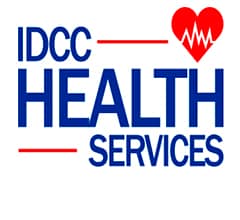Living with constant distractions, impulsiveness, or a pervasive sense of restlessness can be challenging. These experiences might be symptoms of Attention Deficit Hyperactivity Disorder (ADHD), a condition affecting both children and adults globally. Recognizing the signs and seeking the right medical advice are pivotal steps towards managing ADHD effectively. This guide introduces you to the professionals who diagnose and treat ADHD and outlines their distinct roles.
Discover personalized care with our primary care physicians in Brooklyn.

Understanding ADHD: A Comprehensive Overview
ADHD is not merely about being easily distracted or energetic; it’s a complex neurodevelopmental disorder impacting concentration, self-control, and activity levels. Symptoms manifest in multiple areas of life, affecting academic performance, work efficiency, and interpersonal relationships. Early detection and targeted intervention are crucial for mitigating these impacts and enhancing the quality of life for those affected.
Pediatricians: Frontline in Children’s ADHD Care
For children exhibiting potential ADHD symptoms, pediatricians are often the first healthcare professionals to consult. They can perform initial evaluations, discuss symptoms, and review the child’s behavioral patterns. While pediatricians can initiate the diagnosis process, they might refer your child to ADHD specialists for a more in-depth assessment.
Psychiatrists: Experts in ADHD Diagnosis and Medication
Psychiatrists, with their comprehensive medical background, are adept at diagnosing mental health conditions, including ADHD. They offer detailed assessments and are uniquely qualified to prescribe and manage medications, a common component of ADHD treatment. Their expertise ensures that any pharmaceutical approach is carefully tailored to the individual’s needs.
Clinical Psychologists: Detailed Assessments and Therapy
Clinical psychologists specialize in diagnosing ADHD through extensive psychological evaluations. They employ various tools, such as interviews and standardized tests, to understand the individual’s unique profile. Although unable to prescribe medication, psychologists provide indispensable therapeutic support, helping individuals develop strategies to manage ADHD symptoms effectively.
Collaborative ADHD Care: A Team Approach
Effective ADHD management often requires a multidisciplinary team. Neurologists might be involved to exclude other neurological issues. Family physicians or nurse practitioners may assist in ongoing medication management and overall health supervision. Each professional contributes their expertise, working together to create a holistic treatment plan.
Selecting the Right Specialist: Key Considerations
Choosing the right professional for ADHD care involves several factors:
- Expertise: Look for specialists with a proven track record in ADHD management.
- Qualifications: Verify their professional credentials and experience.
- Approach: Understand their treatment philosophy and ensure it aligns with your preferences.
- Rapport: Choose someone with whom you can communicate openly and comfortably.
Comprehensive ADHD Management: Beyond Medication
While medication is beneficial for many, ADHD treatment encompasses more than pills. Personalized therapy, behavioral interventions, and educational support are equally vital. These approaches aim to enhance organizational skills, reduce impulsive behavior, and improve overall functioning.
Empowerment through Understanding: Your Path to Managing ADHD
Identifying the right healthcare provider is a crucial step on your ADHD journey. Whether you’re seeking help for yourself or a loved one, understanding the roles of various professionals in diagnosing and treating ADHD empowers you to make informed decisions. Remember, effective ADHD management is not a one-size-fits-all endeavor but a personalized journey towards well-being and achievement.
In navigating ADHD, knowledge is power. With the right team and strategies, individuals with ADHD can lead successful, fulfilling lives. Don’t hesitate to reach out to healthcare professionals, and remember, every step forward is a step towards thriving with ADHD.
